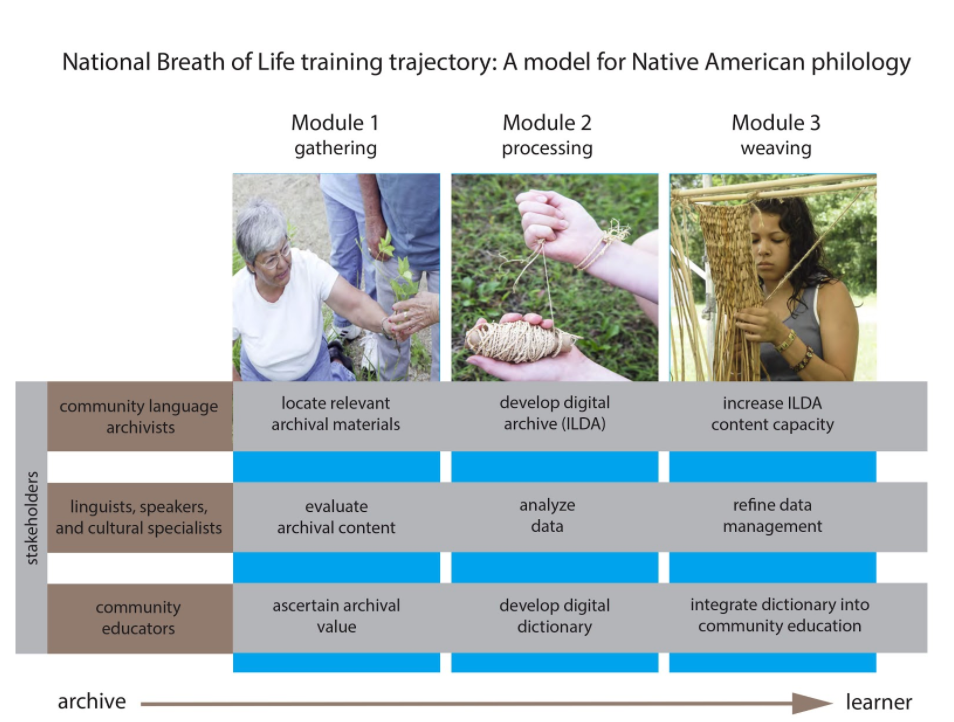Native American philology is the systematic examination and study of language and cultural information from written and other recorded materials for the advancement of community goals. The field of Native American philology, as it pertains to archive-based language revitalization, is an emerging yet rapidly expanding field. Since the early 1990s, the field has grown exponentially on account of the increased role of archives within language revitalization efforts across tribal communities. The National Breath of Life Archival Institute for Indigenous Languages (National BoL) alone has provided training to 141 tribal representatives from 65 language communities since 2011. More broadly, Native American philology for language revitalization constitutes a growing movement led by Community Researchers seeking to impact their communities through humanities-centered language work. This in turn highlights the increased importance of archives and of the ability of Native American communities to process, curate and care for these collections so that they may be broadly accessible to their members in the most culturally appropriate and beneficial way.
For archival language materials to be of educational value to the revitalization of an endangered, awakening or dormant language, they need to be located, evaluated, organized, and analyzed. Much of this archival work must be carried out before the language data can be made accessible to language communities in meaningful ways that contribute to the revitalization of languages and cultural practices. The Native American Philology Model conceptualizes the process of locating, preparing and integrating archival language materials into language revitalization contexts through the metaphor of weaving. Much like basketry materials, archival language resources are first collected, then processed before being woven into a community fabric or basket of language use and learning as shown in the diagram below.

Each phase of the process corresponds to a training module designed to create a sustainable pathway that allows archival content to efficiently and productively reach language learners within tribal communities.